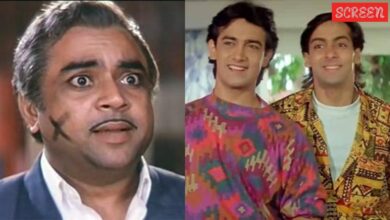Mahesh Bhatt’s Arth: A film on relationships that remains relevant in the era of Tinder

A film made 40 years ago about relationships that remains relevant in the age of Tinder — that is Mahesh Bhatt’s National Award-winning Arth for you. Made in 1982, the semi-autobiographical film Bhatt, starred Shabana Azmi, Smita Patil and Kulbhushan Kharbanda. Shunning the world of ‘heroes and heroines’, it was inhabited real people with warts and all and yet each was treated empathy and minus any judgment.
In the times when we’re in a race to make the biggest pan-India films that is a spectacle and don’t really show a mirror to the society, Arth gives us a chance to focus on the personal and take an in-depth look at the dynamics of marriage.
As a film journal I should have watched Arth much earlier in my life, but I saw it recently, on a solo train trip. Apart from re-validating the fact that Shabana Azmi and Smita Patil are some of the best actors we’ve had in the hory of films, it reaffirmed the belief that films can be made without cliched tropes, making characters as real as life is.
The life journey of Shabana’s Pooja and Smita’s Kavita form the crux of the film that’s based on a man cheating on his wife to be with another woman. From seeing Pooja cry as her marriage falls apart because her husband is sleeping with a starlet (played Smita Patil) to see her grow into an independent woman who struggles to find a job, and then successfully stands on her feet was seeing a full life being lived on screen. Watching Kavita find her man in another woman’s husband, and then deciding to leave him because he is not the source of her happiness was liberating. Inder, for all his faults, is not painted as a villain, but as someone navigating through life as best as he can. He feels the need to be transparent about his extramarital affair, respecting his marriage and informing his wife about the affair before leaving her, he doesn’t abandon her into a black hole of a messy marriage.
While Shabana’s Pooja is a reflection of a woman that most women, who are caught in such a situation, would aspire to be, it is Kavita who takes the cake for me. There is a line in the film where the two women confront each other and Kavita tells Pooja, “It wasn’t your husband I fell in love with but the man Inder (Kulbhushan Kharbanda’s character) is.” And that, even if debatable, is what her love for Inder is all about. All the while she fell in love with him, lived with him, she was aware that Inder is a married man, but Bhatt beautifully brings out the internal journey of Kavita.
At no point in the film Kavita is shown as the vamp, as most Hindi films portray the ‘other’ woman. Kavita’s vulnerabilities are powerful in the film, and shows a mirror to why she is the way she is. The film also talks about Kavita’s mental health with empathy and understanding. This was at a time when psychological issues were not dealt with in films. At the same time, it also shows how obsessive someone in love can be, in this case a woman who constantly worries about how the man she loves will eventually go back to his wife and chooses a life that is far more stable than a relationship made out of a broken marriage.
Arth also has yet another memorable character, Pooja’s domestic help, played Rohini Hattangadi, who’s a victim of domestic abuse. Her husband too has an extramarital affair and she is the one who works, runs her home and wants to save up enough for her daughter to not live a life similar as hers, get better educational opportunities instead. There is a scene in the film when Pooja inquires about the bruises on her face, and how she respond that it is her husband who beats her up after getting drunk, since he has a mress.
Arth is about complex relationships, but it is also as much about the agency of women. Pooja finds her true self, finds happiness in solitude, rare for a woman who cried over her husband leaving her. Pooja also rejects advances made Raj (played Raj Kiran) who stands her, supports her and falls in love with her. It is this moment in the film where Pooja really flies in glory. She also adopts her maid’s daughter. Pooja’s arc in the film is inspiring at every step.
Both women in Arth are strong characters. As Bhatt shows Pooja’s growth, internal and external, he also shows Kavita’s growth. She is shown as someone who is mentally and emotionally dependent on Inder, but the moment she realises how her relationship with him is not bringing her any happiness, she leaves him. And once Inder goes back to Pooja, the woman who prayed for her husband to return to her, and is shown the door.
In several films we’ve seen how women’s lives revolve around a male protagon, but here, a male lead is used as a catalyst to two women’s journeys, evolution and self acceptance. The film also stands out for its outstanding music, the layered lyrics penned Kaifi Azmi, Iftikhar Imman and Rehbar. Songs in the film — “Tum itna jo muskura rahe ho”, “Jhuki jhuki si nazar”– act like a balm to the aching heart that make beautiful melodies to go back to even today.






